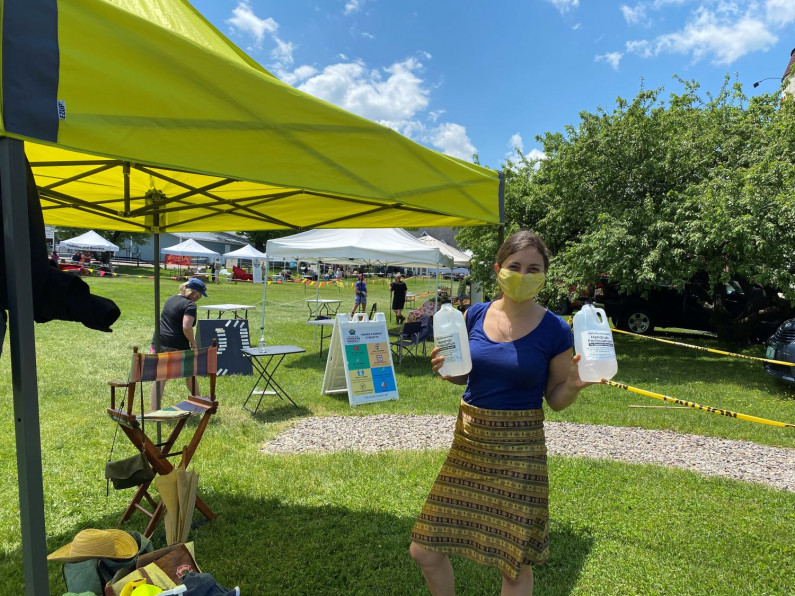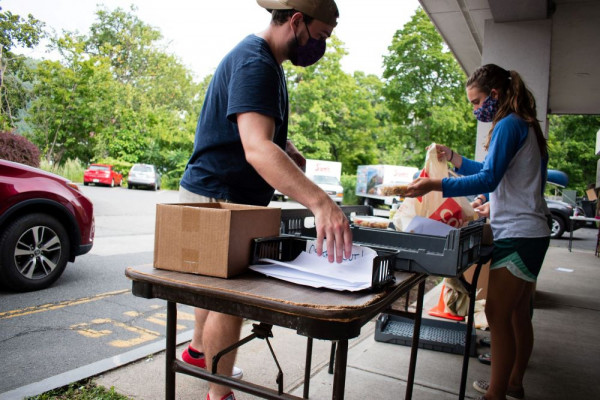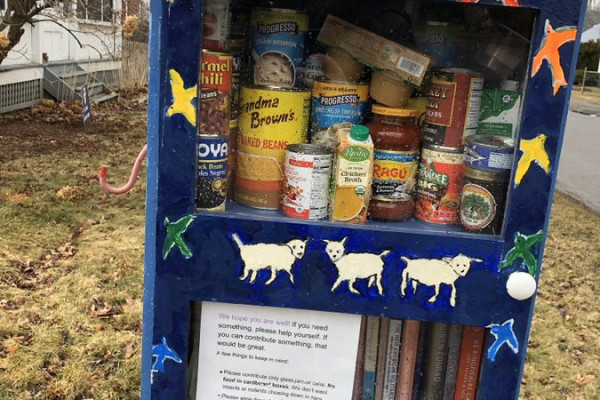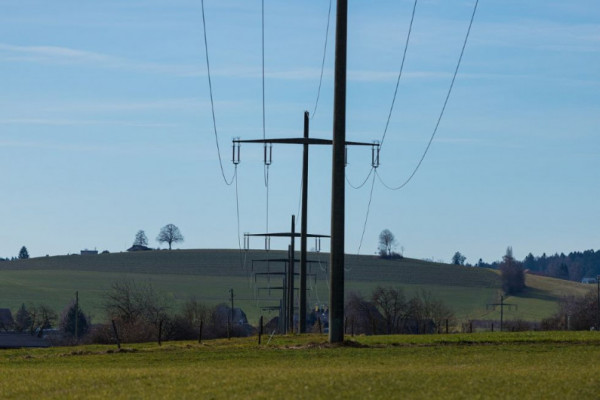Farming and farm-based products are embedded in the cultural fabric of Vermont. Agriculture may not look like it did fifty years ago but it is still critical to Vermont’s economy, health, and working landscape. This has proven to be fundamental to our resilience during the pandemic. Vermont’s food system—growers, processors, distributors, restaurants, grocery stores, farmers’ markets, etc.—continue to meet the demand from local consumers uncertain of national supply chains and they are stretching in new ways to ensure no Vermonters go hungry.
Read more about "The VT COVID-19 Response Fund Recovery Initiatives: A Q+A on Food System Resilience"Share Our Post:
High Meadows Adjusts Our Grantmaking in Response to COVID-19’s Impact

This is a guest blog from the High Meadows Fund, a supporting organization of the Vermont Community Foundation.
COVID-19 has dramatically shifted each of our lives and our organizations’ plans for the spring, the year, and the foreseeable future. Circumstances are evolving uniquely for each of us, professionally and personally. We’re writing to be transparent about High Meadows’ approach and our hopes as Vermont begins to recover and build more resilient systems throughout the state.
In responding to the crisis, the High Meadows Fund is providing flexibility wherever possible. We recognize that impacts from this crisis are unfolding in different ways for our partners and peers. We are reaching out to our grantees to listen to how the disruption is affecting their work and how HMF might offer help.
In thinking about our response to COVID-19, we reflected on our response to Tropical Storm Irene. While High Meadows participated in a modest level of immediate response to Irene because of its impact on several farms, most of our engagement was towards exploring the long term implications of the storm, especially related to the relationship between communities and waterways. That eventually led to our Watershed Resilience Initiative, supporting community-based initiatives to build greater understanding of the relationship between waterways and rural communities’ housing, roads, farms and other infrastructure, and the need for connectivity among communities in a watershed.
What did we learn from Irene that we can apply now? What’s different? Because COVID-19 has had an immediate impact on the food supply chain, we’re thinking about the pandemic’s impact both in the short-term and over the longer recovery phase. Also different from Irene, COVID-19 has had an impact on the financial markets on which HMF relies to support our grantmaking. Despite the market downturn, the High Meadows board decided to maintain the same budget for grantmaking we had planned for 2020. They have also agreed to focus on initiatives we already support, with greater emphasis in particular on food systems and rural communities, at the expense of seeking out new grantee relationships. We are generally not making new commitments that extend beyond 2020 until we have a better sense of the long term outlook for financial markets.
For our existing 2020 grant commitments, High Meadows is offering additional flexibility related to outcomes that may have been anticipated for the year. In many cases, our grants in 2020 have shifted to general operating support. Within our three signature projects, we continue to focus on watershed resilience, forest health and integrity, and expanded markets for farm and food businesses, but with a shared acknowledgment that this work could take very different shapes than we originally thought, given the restrictions social distancing places on community-based activity of watershed teams and forest landowner outreach, and given the impact of COVID-19 on the regional food supply chain. In a future post, we plan to talk more about the challenges and opportunities we see in our food and farm grantmaking and investing.
We’ve also offered to delay reporting requirements for grantees, given the many immediate demands of shifting to remote work, often with children to coach through school assignments or enjoy during school vacation week.
Thinking about the long term recovery from COVID’s economic and social disruption, we are concerned about the stark difference in the capacities of different communities to cope and respond. Social distancing advice often fails to recognize this gap – how does a family buy two weeks of food at a time if they can’t afford this week’s food? How can their children learn online with no or poor internet service or limited access to computers in the home? And, how can the workers now recognized as “essential” be fairly compensated with adequate wages and benefits that enable them to afford to take time off when they are sick – thereby keeping their communities healthy as the economy gets back in gear? An equitable response and recovery must address these questions. High Meadows plans to increase investment in initiatives that strengthen civic infrastructure and build social and economic as well as environmental resilience in rural and low-income communities.
Besides the many uncertainties of life during and after COVID-19, we harbor another layer of concern for our grant partners. We are concerned that their passion and determination to build a more just and sustainable world could lead them to over-extend themselves as individuals and organizations. We are asking all our partners to be patient, as we all adjust to the overlapping worlds of home and work, as we further adjust if and when members of our team become sick, and as we address a pandemic that’s bigger than any of us. To stay healthy, we all need to plan for redundancy when people get sick and let go of unreasonable expectations. And we invite our partners to call us out if we are the source of any of those unreasonable expectations.
Tropical Storm Irene reminded us that crises can reveal critical vulnerabilities in the systems we rely on every day, whether ecological, economic, or social. Recovering from Irene sparked new approaches and new relationships that led to greater connectivity and vibrancy in many regions. With that in mind, we approach the long path to recovery with the hope that COVID-19’s disruption will enable Vermonters to build more resilient, more inclusive communities in the months and years to come.


